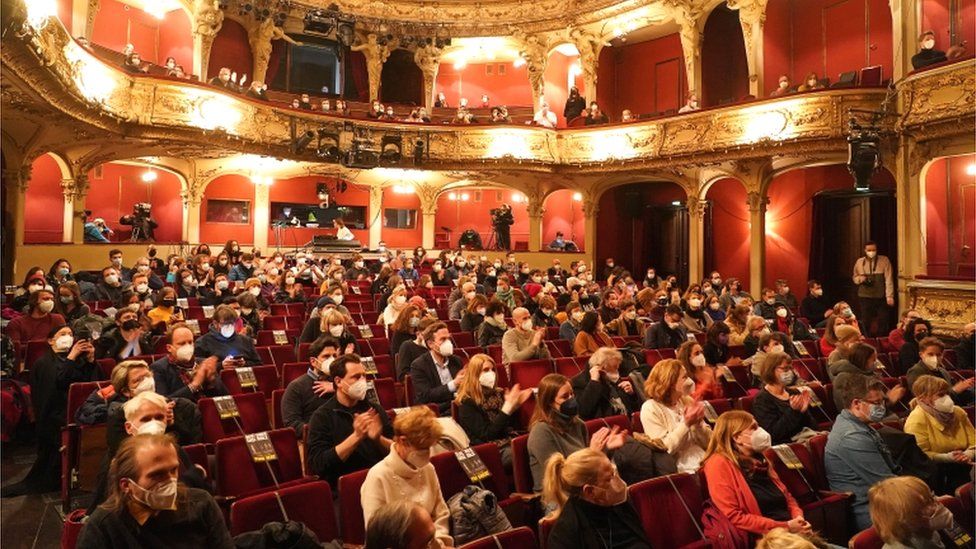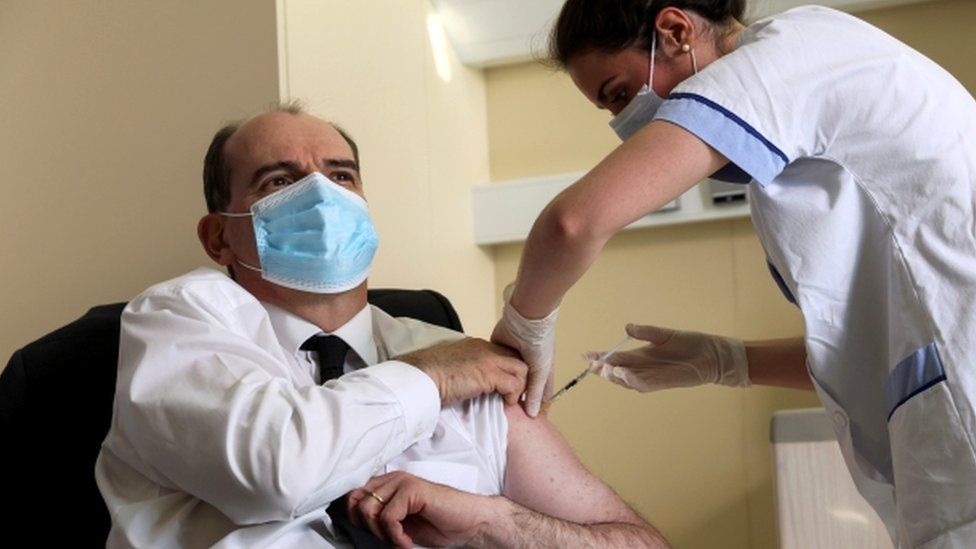Coronavirus cases are rising exponentially in Germany, officials warn, as continental Europe braces for a third wave of infections.
German Chancellor Angela Merkel said it was likely that the country would now need to apply an “emergency brake” and re-impose lockdown measures.
France, Poland and other nations are also reintroducing restrictions.
German Health Minister Jens Spahn has said that Europe lacks the vaccines needed to significantly reduce cases.
“We have to be honest about the situation – in Europe we don’t have enough vaccines to stop a third wave through vaccinations alone,” he told reporters.
The vaccine rollout across the EU has been hindered by delayed deliveries as well as the suspension in several countries of the use of the Oxford-AstraZeneca Covid-19 vaccine, over fears of possible side effects.
On Friday, Ms Merkel defended Germany’s decision to temporarily suspend the rollout of the vaccine and said she did not believe its reputation had been damaged.
“I would get vaccinated with AstraZeneca,” the 66-year-old said, adding: “I would like to wait until it’s my turn.”
What’s the situation in Germany?
The increase in reported cases in Germany is said to be fuelled by outbreaks among younger people.
“The numbers are rising, the share of mutations is large and there are some fairly challenging weeks ahead of us,” Mr Spahn said.
 IMAGE COPYRIGHTEPA
IMAGE COPYRIGHTEPAMs Merkel said she had hoped lockdown measures would not need to be reintroduced so soon after easing restrictions, but that “sadly” developments meant that it was looking unavoidable.
“We agreed that, should the seven-day incidence rate exceed 100 per 100,000 people in a region or state, we will go back to the restrictions which were in place until 7 March – we called it the emergency brake.”
Ministers are particularly concerned about the Easter holidays. They are urging people not to travel and to limit gatherings to immediate family.
Just 8% of Germany’s population has so far received a first dose of vaccine, although the government on Friday resumed the rollout of the Oxford-AstraZeneca jab.
Vice-president of the Robert Koch Institute (RKI) for infectious diseases, Lars Schaade, warned of the possibility of “many severe cases and deaths, and hospitals that are overwhelmed”.
The RKI has said that cases in Germany are rising at a “very clearly exponential rate”.
What’s the latest on the AstraZeneca vaccine?
Despite assurances from the European medicines regulator that the AstraZeneca vaccine is safe and effective, some countries remain reluctant to resume their campaigns using the jab.
Finland’s health authority has announced a pause in its use of the vaccine that will last at least a week.
The move, which follows two reports of blood clots in patients who had received the jab in the country, was said to be a precautionary measure.
Meanwhile, Sweden, Denmark and Norway said on Friday that they needed more time to determine whether they should resume AstraZeneca inoculations.
Germany, Italy, France, Spain and the Netherlands are among the countries that have restarted their AstraZeneca vaccination campaigns.
Health authorities in France have recommended that the vaccine be offered only to people aged 55 and over.
The European Medicines Agency (EMA) reviewed the jab after 13 European countries suspended use of the vaccine over fears of a link to blood clots.
It found the jab was “not associated” with a higher risk of clots.
The World Health Organization (WHO) has urged countries to continue using the AstraZeneca vaccine.
On Friday, experts at the WHO said the vaccine had “tremendous potential to prevent infections and reduce deaths across the world”.
“The available data do not suggest any overall increase in clotting conditions such as deep venous thrombosis or pulmonary embolism following administration of Covid-19 vaccines,” the WHO’s Global Advisory Committee on Vaccine Safety said in a statement.
Other European leaders have sought to reassure citizens that the Oxford-AstraZeneca jab is safe.
Italy’s Prime Minister Mario Draghi, 73, said he would happily have the vaccine, but that he had “not yet made a booking”.
His French counterpart, 55-year-old Jean Castex, received an AstraZeneca dose on Friday.
 IMAGE COPYRIGHTREUTERS
IMAGE COPYRIGHTREUTERSMeanwhile, UK Prime Minister Boris Johnson has also received his first dose of the vaccine.
What’s happening in France and Poland?
Some 21 million people in 16 areas of France, including the capital Paris, will be placed under Covid lockdown measures from midnight on Friday as the country fears a third wave.
Trains leaving Paris for parts of the country where lockdown restrictions do not apply, such as Brittany and Lyon, were reportedly fully booked hours before the measures were due to come into effect. Traffic jams were reported on several roads leaving the capital.
In Poland, coronavirus cases are continuing to surge with new daily infections reaching levels not seen since the second wave peaked in November.
A three-week partial lockdown is being introduced on Saturday to try to slow the spread of Covid-19. Shops, hotels, cultural and sporting facilities will close across the country.
Source: BBC



Comment here
You must be logged in to post a comment.